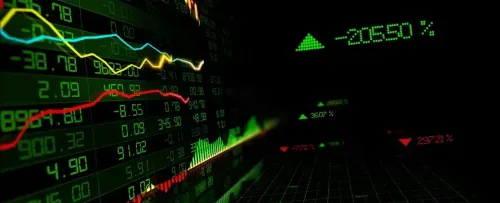South African traders risk losing money by picking the wrong broker. Choose an FSCA-regulated broker with transparent fees, fair spreads, local payment options, and a reliable trading platform. Seacrest Markets stands out for regulation, tight spreads, and strong local support.
The R50,000 Mistake Every South African Forex Trader Makes (Broker Choice)
Selecting the wrong broker for your trading account can end up costing you dearly.
Traders often spend hours trying to find the best strategy to succeed in the global markets, only to lose money because their broker was following shady practices or charging hidden fees.
That mistake can cost as much as R50,000 or even more! But just by knowing how to evaluate forex brokers and choose a trusted forex broker, these risks can be avoided.
In this article, we’ll look at the landscape of South African forex trading, outline the criteria for choosing a broker, and highlight what makes a reliable partner for your trading journey.
Why Forex Trading in South Africa is Growing
The last decade has seen Forex trading grow by leaps and bounds in South Africa. As one of the most volatile currencies among the emerging market economies, the South African Rand offers a gold mine of opportunities within the wider financial markets for traders who are adept at managing risk.
While the South African Reserve Bank manages policies around the local currency, fluctuations in the country's economy often have an impact on movements in the forex markets.
The overlap between the London and New York sessions, the two big markets where major currencies like USD, EUR, and GBP are traded, also benefits South African traders.
Are Brokers Regulated in SA? What is The Financial Sector Conduct Authority (FSCA)?
The Financial Sector Conduct Authority (FSCA) is the main regulator in South Africa, replacing the old Financial Services Board. It supervises financial service providers, enforces regulatory compliance, and ensures that retail traders who trade forex are protected.
The FSCA ensures that brokers provide risk disclosures which tell potential clients how many retail investor accounts using their services lose money.
It also ensures that brokers give negative balance protection to their clients.
The FSCA also collaborates with international regulators like The Australian Securities and Investments Commission (ASIC) to prevent cross-border fraud and clamp down on forex scams. This is why, before opening new accounts

Trade Real Markets with Seacrest
Open a live brokerage account and access global markets with competitive spreads and fast execution.
Forex Markets and The Importance of Trading Platforms
The first port of entry to forex markets is a trading platform.
A reliable trading platform like MT4 or MT5 supports automated trading and charting tools, along with educational material, making it invaluable for traders.
But just because you're planning to trade forex doesn't mean you should ignore other types of investments. Your account should give you access to multiple asset classes, such as indices, commodities and crypto.
Every professional trader knows that you simply cannot put all your eggs in one basket. It's important to diversify your trades across multiple financial instruments. This is why access to trading in multiple asset classes becomes important.
Good trading platforms also provide trading guides, educational material, and in many cases, access to trading signals or copy trading services.
Understanding Account Types
For traders starting out, there are several options available to new traders. Here's an overview of the most common:
-
Basic accounts with simple spreads and no commissions
-
Premium accounts with tighter spreads but higher minimum deposit
-
Domestic accounts in South African rand and international accounts in USD/EUR
-
Demo accounts for testing before risking capital
The right choice will probably depend on whether you're a new trader just getting into forex or a more advanced one looking to scale. Advanced traders may be after more robust features and willing to pay a little more for them.
Exceptional Support Facilities
Support is another thing to consider when selecting a broker. Traders often get swayed by the promise of low minimum deposits and commissions when opening a new account, but that's not the right way to go.
What matters is quick setup, high-quality help on trades and withdrawals, and the presence of educational resources and trading guides to guide you along your journey.
For the more experienced traders, the availability of detailed technical analysis and advanced trading tools is important.
Forex Brokers in South Africa: An Overview
There are several forex brokers operating in South Africa. Traders can choose from international firms with local presence or homegrown options.
While most offer similar basic services, they can be differentiated based on trading conditions, the reliability of their trading platforms (MT4/MT5), and the efficiency of their funding processes.
Also consider whether you can open a South African account and trade in ZAR, whether it's easy to deposit and withdraw using local payment methods, and if the broker offers any educational resources to guide a new trader.
How to Select a Forex Broker in South Africa
Before selecting a forex broker, make sure you get answers to these questions:
-
Does it have an FSCA license?
-
Does it provide fair minimum deposit requirements?
-
Does it have multiple account type options, such as standard accounts and premium accounts?
-
Does it offer local payment methods like EFT or card funding with South African banks?
-
Does it give you access to both international accounts in USD or EUR and domestic accounts in South African ZAR?
-
Does the broker provide you with strong educational resources?
Why Seacrest Markets Stands Out
Considering all factors, Seacrest Markets is a great FSCA-regulated option available to South African traders. It's a regulated broker licensed by the FSCA that truly understands the local market.
What also sets Seacrest Markets apart is its commitment to transparency and fair-trading practices. The broker offers tight spreads and a robust trading platform like MetaTrader 5 (MT5) that handles market volatility easily.
Key features that make Seacrest Markets a reliable broker for South African traders include:
Regulation & Compliance: Fully FSCA-licensed with transparent risk disclosures and negative balance protection for all clients.
Trading Platform: Advanced MetaTrader 5 integration with sophisticated charting tools and automation capabilities, designed to handle market volatility seamlessly.
Trading Conditions: Competitive, tight spreads on major currency pairs with transparent fee structures and reliable execution.
Account Options: Multiple trading account types with reasonable minimum deposit requirements, including both standard and premium options to suit different trader profiles.
Local Focus: Strong support for local payment methods, bank transfers, and card funding, with fast processing times that understand South African banking systems.
Education & Support: Comprehensive demo account access, extensive educational resources, training materials, and dedicated local support staff.
Market Access: Full access to forex, commodities, indices, and crypto, providing the diversification serious traders need.
What's Next for Forex Trading in South Africa?
Forex trading in South Africa is growing. It is likely to become better regulated, more transparent, and more competitive in the future. South African forex brokers have to keep investing in educational resources, robust trading platform technology, and fair trading conditions to remain in the game.
Pick a regulated broker that provides fair spreads, solid support and is licensed. When you start trading with the right partner, you protect yourself from making costly mistakes and position yourself for success in the years ahead.



